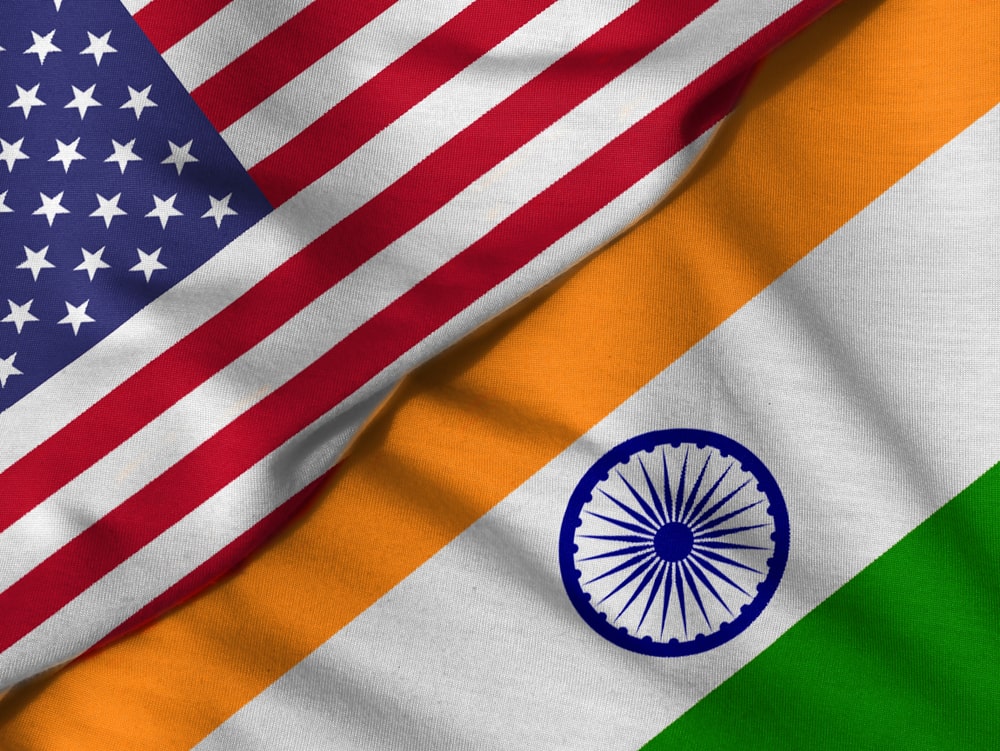
India navigates fallout from 50% tariffs imposed by US
55% of India’s merchandise exports to US will be subject to the new 50% tariff imposed by the Trump administration, according to Indian Government officials.
The Trump Administration imposed an additional 25% tariff on Indian goods as punishment for India's purchases of Russian oil, making the new tariff the highest of all of the US’ trading partners, according to Reuters.
Trade between the US and India by ship, was worth £87 billion last year, according to ALPS Marine, with the US ranking as third largest trading partner for India, behind UAE and China.
In response to the tariffs, senior Indian business executives, and supporters of Narendra Modi’s Government, have urged Indian consumers to boycott US-based multinationals including Coca-Cola and Walmart.
India has long been a key market for the United States, not just because it is the world’s largest country by population, but because Indian consumers see accruing international labels as a symbol of their status in society, according to Reuters.
The country is the biggest market by users for WhatsApp and the US chain, Domino’s has more restaurants than any other brand in the country. However, in industries such as IT, Indian firms like Infosys and TCS lead the way, with a client base across the globe, an approach that has been the blueprint of many Indian firms.
In a recent speech in Bengaluru, Prime Minister Modi signaled a shift in this approach, telling the audience gathered that “now is the time for us to give more priority to India’s needs”.
The new 50% tariff does have some exemptions, with smartphones, pharmaceuticals and energy being exempt from any reciprocal tariffs, according to Reuters. Meanwhile, sectors such as gems and jewellery, textiles and auto components will not be exempt.
Most of the iPhones sold in the United States are now made in India, highlighting Apple’s shift in manufacturing from China towards India.
Key Apple suppliers including Foxconn Hon Hai; Tata Electronics, Pegatron Corp and Winstron Infocom, shipped a collective $7 billion of products to US from India last year, as cited by Reuters.
Pharmaceutical companies including Dr Reddy’s Laboratories, Zydus Lifesciences, Hetero Labs, Lupin and Sun Pharmaceuticals exported $3.6 billion of goods to the US last year, according to Reuters.
Overall, India shipped $6.4 billion worth of pharmaceuticals goods to the US last year, according to our analysis.
Yet, for the industries that are not exempt from tariffs, it is expected that they will take a significant hit to their trading.
India’s gems and jewellery sectors is reliant on the US, who which accounts for $10 billion, equivalent to 30% of the sector’s total global sales.
Therefore, it was no surprise that India’s Gem and Jewellery Export Promotion Council warned that the new tariffs could bring the industry to a standstill. A potential devasting scenario, as India faces growing competition from rival manufacturing hubs in Turkey, Vietnam and Thailand, all of whom can offer low tax rates to foreign brands.
Similarly, the textile industry is reliant on the US market for much of its trade, exporting $2.4 billion of goods to US last year, according to our ALPS Marine analysis.
In the first half of 2025, India shipped an estimated $1 billion of goods to US clients including Walmart, Target, Costco and Gap, as cited by Reuters.
Leading Indian companies including Shahi Exports, Welspun, Indo Count Industries, Trident and Gokaldas Exports are all expected to take a significant hit.